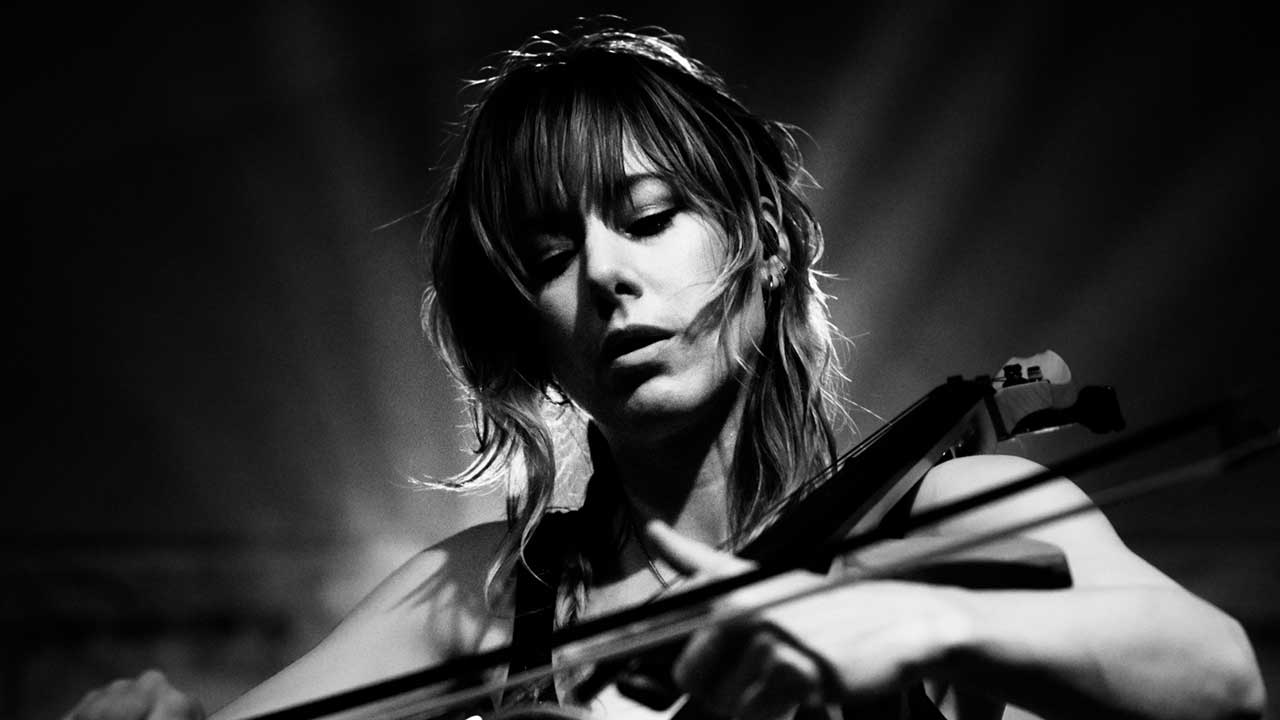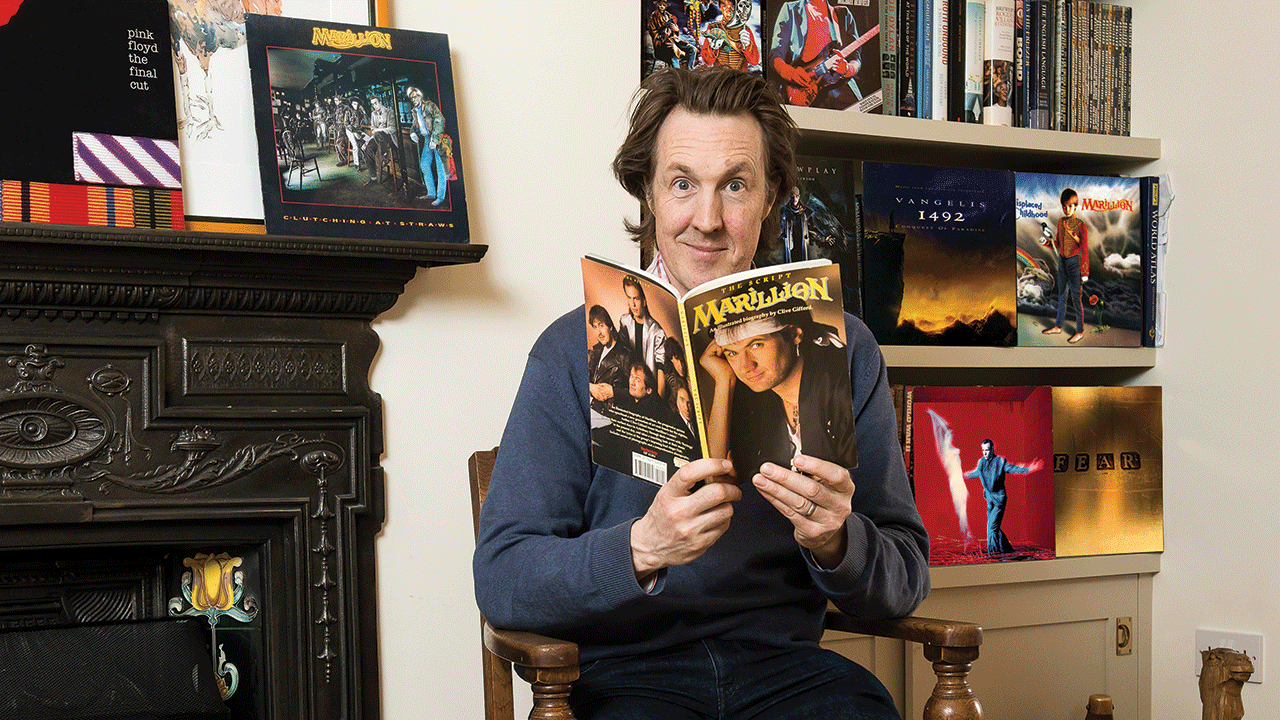“However high-falutin’ the intention, you’re still onstage as an entertainer, so make a performance out of it!” Jo Quail claims it’s easy to write orchestral prog metal - and to be fair, she does make it sound easy
Electric cellist’s classical-stroke-metal masterpiece The Cartographer makes maximum impact from one basic concept, but the real magic is in the delivery

In 2022, Prog's favourite cellist Jo Quail discussed the creation of her Roadburn-commissioned composition The Cartographer, an "artful bending of wild ideas."
Well established as prog’s (and indeed Prog’s) favourite cellist, Jo Quail has been producing extraordinary music that gleefully defies categorisation for a number of years now. Both as a perpetually ingenious solo artist and as a textural counter-point to everyone from neofolk icons Wardruna and Japanese post-rock legends MONO to Swedish death metallers At The Gates, she’s steadily built a reputation as one of modern progressive music’s most singular creatives.
That reputation is set to soar when people get their ears around Quail’s latest creation: The Cartographer. A single, 48-minute piece comprising five distinct movements, it was written in response to a commission from Tilburg’s annual Roadburn Festival and was premièred in its exclusive entirety at this year’s event.
Fortunately for those without a Roadburn ticket, a studio version of The Cartographer has just been released, and it’s an album that takes Quail ever further into prog territory.
“Roadburn said they would like to commission me a few years ago,” the cellist tells Prog. “But things went off the boil because the actual festival wasn’t going to happen that year. There’d been some conversations about what the commission might be, but then I met Walter [Hoeijmakers, Roadburn Festival founder] and he said, ‘Just do what you like!’
”In the official email he sent later, he said that he had noted that there was a lot of heaviness in classical music and he was keen to find ways in which that could be explored musically in a Roadburn context. That was the green light to me.”
Thrilled by the prospect of a new and rule-free challenge, Quail turned to a neatly esoteric way of getting the creative ball rolling.
Sign up below to get the latest from Prog, plus exclusive special offers, direct to your inbox!
“I wrote a five-line poem, and this poem is somewhat like a spell,” she explains. “Then what I did was make a kind of musical sigil, like a magical sigil, and I took the letters in the poem and I assigned them to a musical grid. You can make it a more random thing, but it’s a little easier to do it on a grid.
”What you end up with is a theme, and that’s what the violin plays, after the opening cello theme and the trombones. When the violin plays that phrase, the whole thing, it’s about four minutes, is drawn from the poem. The rest of the piece is built entirely off that theme, so when we go into the next section, it’s all built from the same elements.”
Like all the greatest musical works, The Cartographer demands to be experienced at full blast and in its dizzying entirety. An elaborate yet brilliantly cohesive eruption of ideas, it begins with rolling waves of amorphous atmospherics, reaches a profound emotional peak during the third movement’s squall of Art Zoyd-like classical distortions and bellowed mantras, and concludes with the imperious but ghostly pomp of its climactic fifth movement. With prominent turns from violinist Danielle van Berkom and Dutch brass crew The New Trombone Collective adding to a sense of opulent, orchestral vastness, it is easily identifiable as a jaw-dropping piece of work, and the dazzling grin on Jo Quail’s face says it all.
“Oh I’m extremely happy with how it’s turned out,” she beams. “To be honest, I find this a really pleasing way to write at the moment. Maybe in the future I’ll write in an extremely abstract fashion, but right now I like this way of writing. In the finale, there is a big, expansive moment where we’re playing an identifiable chord sequence.
”That chord sequence is what I play in the introduction, so that completes the circle. It’s a dead simple method of composing. You don’t have to reinvent the wheel. You’re building an entire work from one thing, one phrase. Everything is drawn from the same source.”
One of the main reasons that Quail has assimilated so seamlessly into the world of progressive music is that she genuinely seems to disregard any and all notions of genre or musical boundaries. Her music is the walk that backs up the talk, and The Cartographer is a self-evident career milestone, as Quail casually and simultaneously dips toes into classical, prog, post-metal, the avant-garde and experimental electronica. Like the great works of prog’s first wave pioneers, The Cartographer is an artful blending of wild ideas.
“Yes! Oh, I would put this in prog more than any other category. Radio 3 aren’t going to play it, let’s put it that way! [Laughs] On the recent tour I did with Wardruna, I said at one point, ‘This is my last piece but it’s very long, so don’t worry!’ Everyone clapped and I said, ‘Yeah, me and Prog magazine are good friends!’ and everyone went crazy.
”One of the identifying aspects of prog music is that you have the opportunity to develop within a long-form structure, and that interests me greatly. Whether you’re talking about one movement or an entire album, like [Quail’s 2016 album] Five Incantations, that’s five movements, but it’s also one continual piece, and that to me really fits into the prog mindset.”
I can do things that are much longer form live, which is what really excites me… I’m thinking, how heavy can we make a baroque string orchestra? Let’s have a go!
After its exclusive debut in Tilburg, The Cartographer is set to live on as Quail makes tentative plans for more future performances, while admitting that due to the financial costs involved, shows will inevitably be few and far between.
“I would play it every day if there were funds available for it, but it’s expensive to put it on,” she admits. “It’s 16 people plus crew, it’s a big undertaking. That’s why I’m delighted to have done it at all. Right now, I’m doing some writing for an Australian choir, so we’re also working on the idea of performing The Cartographer over there at some point.”
Meanwhile, Quail is turning her attentions to her next venture as a soloist. Her eyes light up as she points to a new bit of technology in the corner of her home studio, via which a new world of sonic possibilities seems to be opening up.
“Oh, I’m horribly nerdy about this stuff, no apologies! So I’m now using the BOSS RC600 Loop Station, and it’s phenomenal. It opens a lot of possibilities for me as a soloist, performance-wise, because now I can do things that are much longer form live, which is what really excites me, rather than just banging through stuff. I’ve got more space to do it, with multiple extra channels to play through, and it’s opened the gates completely. I’m thinking, how heavy can we make a baroque string orchestra? Let’s have a go!”
After a prolonged period of being denied the chance to perform, Quail is steadily getting back into the groove, pursuing both her increasingly impressive solo endeavours and the all-important collaborations that seem so essential to her ongoing evolution as a progressive musician. Above all, she seems more exhilarated than ever about the chance to make strange and fascinating music, and to perform it for other, endlessly inquisitive souls.
“I have a compulsion to write and to play and I don’t feel that it’s a commercial thing I’m trying to achieve, much to the horror of my agents, but I try to do the best I can, and at all times just be bloody thankful for any stage, especially after the last two years,” Quail concludes.
“When music is challenging in some respects, it asks us to think, to consider and to look at ourselves, because that emotion is raised within us. If it makes us ask questions of ourselves, that’s truly progressive. Asking questions is one of the purposes of art. However high-falutin’ the intention, you’re still there onstage as an entertainer, so make a bloody performance out of it!”

Dom Lawson has been writing for Metal Hammer and Prog for over 14 years and is extremely fond of heavy metal, progressive rock, coffee and snooker. He also contributes to The Guardian, Classic Rock, Bravewords and Blabbermouth and has previously written for Kerrang! magazine in the mid-2000s.
